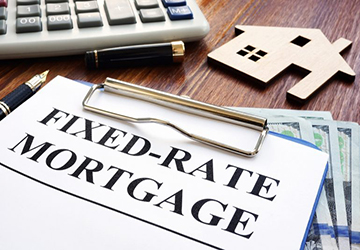A mortgage whose interest rate can change over time is called an adjustable-rate mortgage (ARM). The exact speed on an adjustable-rate mortgage (ARM) is fixed for the introductory period. The interest rate charged on the account balance is then reset periodically (annual or monthly). Alternatively, an ARM may also be called an adjustable or adjustable rate mortgage. Adjustable rate mortgage (ARM) rates vary with the underlying index and spread but are more likely to have spaces. LIBOR has traditionally been the benchmark for adjustable-rate mortgages (LIBOR).

The Basics of Variable Rate Option Mortgages
Many homeowners refinance their fixed-rate mortgages to adjustable-rate option mortgages (ARMs) to lower their monthly payments, even though they may end up paying more in the long run. Unfortunately, after the first promotional period ended, rates fell back to levels typical for traditional mortgages. In addition, borrowers who repay their adjustable-rate mortgages will see their principal balance increase. This is because the accrued interest on the mortgage is higher than the minimum payment. Additional interest on unregistered mortgages will be added to the loan amount. Before the subprime crisis of 2007-08, variable-rate option mortgages were often used to take advantage of rising real estate values. Low initial interest rates on mortgages, usually as low as 1%, lead many borrowers to think they can buy more homes than their income can support.
How to Pay for Option Weapons
Lenders of adjustable rate option mortgages (ARMs) typically allow borrowers to choose how they make monthly payments. Possible options include:
· Minimum repayments.
· Interest-free repayments.
· Fully amortized repayments over 15 or 30 years.
· Amortized repayments over the life of the loan.
The new Qualified Mortgage (QM) standard introduced by the Fair Credit Reporting Act (CFPB) of 2014 avoided the option ARM. Adjustable-rate option mortgages (ARMs) offer borrowers more payment options than fixed-rate mortgages but also risk increasing the overall long-term debt burden. As interest rates can fluctuate quickly and widely depending on the market, so can large mortgages. Some households may benefit from an adjustable rates option mortgage (ARM), such as those run by independent, contract, or commission-based members.

A digital wallet for all your Web3 needs
Accessing various DeFi platforms, including cryptocurrency platforms, NFTs, and more, is easier than you think. OKX is a leading digital asset banking institution, offering you the highest level of security when trading and storing your assets. You can win up to $10,000 by trading cryptocurrency and topping up at least $50 within 30 days of signing up and connecting your current wallet. Learn more and join now!
Adjustable Rate Mortgages vs. Adjustable Rate Mortgages Fixed Rate Mortgages
A fixed-rate mortgage, often called a "conventional" or "conventional" mortgage, has an interest rate that doesn't change for the life of the loan (10, 20, 30 years, or even longer). Adjustable rate mortgages (ARMs) can be cheaper in the short term but are attractive due to their lower initial interest rates. Conversely, with a fixed-rate loan, borrowers can rest assured that their interest rates will never soar, so they cannot afford their monthly payments.
Is an Adjustable Rate Mortgage Right for You?
An ARM might be a good choice if you only need a short-term loan and can afford to raise interest rates. Limits on how many arms can raise rates at any one time or in total are standard. Interest caps, which can be annual or lifetime, limit the maximum annual interest rate increase or decrease over the life of the loan.
Diploma
ARM's rates may change periodically based on the performance of a given index. Most ARMs have caps on the interest rate and the annual and cumulative increase in monthly payments. Homebuyers who only want to hold their loans short-term and can afford the potential increase in borrowing costs can benefit financially by choosing an ARM. An option ARM is an ARM that gives the borrower the flexibility to decide how much to pay each month. These include 30 years of fully amortized contributions, 15 years of fully amortized payments, investment payments, and a "minimum payment" that excludes monthly principal and interest in the hope that total debt won't skyrocket.









